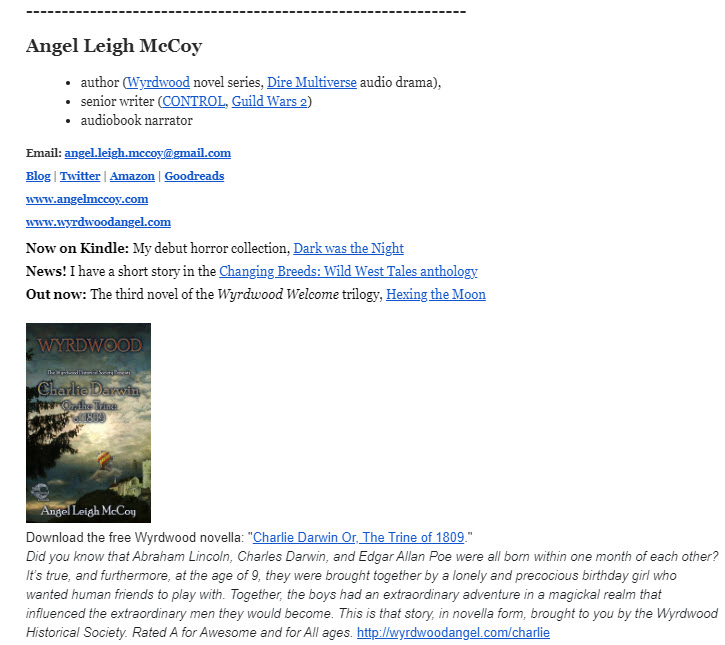View Angel’s Newsletter Sign up for it on her website. My newsletter is specific to my Wyrdwood novel series. I’ve branded everything around the word “Wyrdwood.” Strange, wonderful, and terrifying beings (and their stories) exist in Wyrdwood, often right next door. I try to relay this feeling in my newsletters. I don’t share a lot…
Promotion
View Lisa’s Newsletter Sign up for it on her website. Back about six years ago, I hired an expert in book promotion to help me with sales. Her biggest tip? I needed an author newsletter. The first thing you need to know: most internet service providers will limit the number of e-mails you can send…
A newsletter is the absolute best way to reach those fans who love your work. You collect their email addresses then contact them directly when you have a new product on the market. Your fans opt in to receive these emails, so you know they want to hear from you, and you’re doing them a favor by keeping them apprised of your news.
- What options exist for setting up a newsletter?
- Does a newsletter need to cost money?
- How often do I need to send one out?
- What do I say in them?
- How do I collect emails?
All these are great questions. Let’s look at the answers.
Log in to view it all.
I wanted to tell you all about a tool I use for posting to social media. It makes my life so much easier!
SmarterQueue
What is it?
It’s an online application that hooks up to your social media accounts (FB, TW, Insta, LinkedIn, etc.). You post there and it sends the post out to all your accounts.
It’s extremely powerful and flexible.
You can:
- Create categories to sort your posts.
- Make posts evergreen or recurring on a schedule you set. (I have many that recur annually.)
- Schedule posts to go live in the future.
- Add multiple images to a single post so that when it recurs, it rotates through the images.
That’s just a taste of what it does. This program is extremely useful to me for product posts. I create them once, then it sends them out on my schedule and reminds people that my products exist.
When I launch a new book, for example, I post about it with various images and set it to recur every 3 months. The first one goes out to all my social media sites, and then 3 months later, it goes out again with a different image—automatically.
It’s a huge time-saver!
If anyone is interested, I can do a walkthrough video of it. Just ask.
The following people have uploaded content and a request for assistance with promoting their work! Wily members can feel free to scavenge it and share and post about the author and their works. It’s excellent content! And don’t forget, you can always ask the author for an interview to further boost the value of your content to your followers.
The most recently updated are at the top.
- Allie Yohn
- Joan De La Haye
- E.S. Magill
- Lisa Morton
- Lee Call
- Angel Leigh McCoy
- Alan Baxter
- Weston Ochse
- Jennifer Brozek
- Bill Bodden
- Yvonne Navarro
- Loren Rhoads
If you’d like your name on this list, visit this page and fill out the General Author Promotion form.
As a Wily Writers member, you can join our promotions simply by uploading your information into the system. The following gives you specific information for how to do this. ❖ General Promotion of YOU This is the first and most important form to fill out. All the other forms also require that this one be…
Did you know that you can post your newsletter in public forums, such as your social media accounts? You can, and it’s a great idea to do this occasionally.
You can even create a special edition of your newsletter for the public, especially if you don’t want to share exclusive content that wide. This can be especially effective around the launch of a new book.
The following ad will appear in the August 2021 issue of the Horror Writers Association newsletter as part of our Wily Writers Group Promotions Project! Thanks to a generous donation from a wily member, we were able to purchase two full-page ads. This is the second one. You can view the July 2021 ad here.

RABARTS/MURRAY ❖ RHOADS ❖ MCCOY |
||||||||
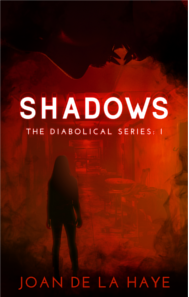
|
(Book #1 of the Diabolical series) What if you thought you were losing your mind? “If you’re open to reading a book that is genuinely disturbing, in some cases distasteful, and creepy as hell, then I’m pretty sure you’ll ‘enjoy’ Shadows.” – Dave de Burgh, author of Betrayal’s Shadow
|
|||||||
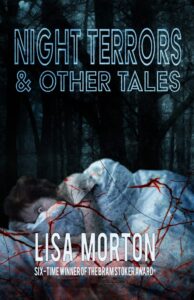
|
by Lisa Morton (short story collection) This is the first major collection to gather together twenty of Lisa Morton’s finest short stories (chosen by the author herself). During a career that has spanned more than three decades, she has produced work that has been hailed as “consistently dark, unsettling, and frightening” (the American Library Association’s Readers Advisory Guide to Horror). If you’ve never encountered Lisa Morton’s work before, you’ll find out why Famous Monsters called her “one of the best writers in dark fiction today.” If you’re already a fan, this collection will offer up a chance to revisit these acclaimed and award-winning stories.
|
|||||||
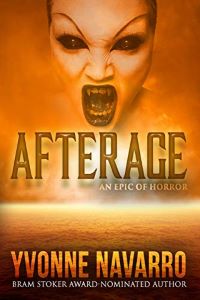
|
(published by Macabre Ink) A plague of vampirism has crept across the country, reducing once-thriving cities to ghost towns. In Chicago, a few scattered survivors hide behind the fortified walls of office buildings and museums, raiding deserted stores for dwindling supplies of clothing and food. Meanwhile a hungry vampire population also struggles for survival as their prey grows scarce, forcing them to capture alive the last remaining humans as breeding stock for the blood farms that will ensure their future.
|
|||||||
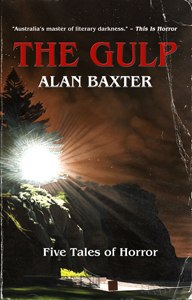
|
(published by 13th Dragon) The isolated Australian harbour town of Gulpepper isn’t like other places. Some maps don’t even show it. And only outsiders use the full name. Everyone calls it “The Gulp.” It has a habit of swallowing people.
Five novellas by Alan Baxter. Five descents into darkness. Welcome to The Gulp, where nothing is as it seems. |
|||||||
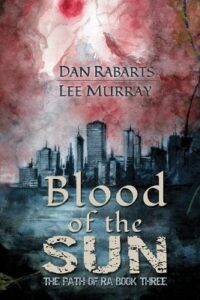
|
by Dan Rabarts and Lee Murray (The Path of Ra, book 3, published by Raw Dog Screaming Press) There’s been a gang massacre on Auckland’s Freyberg Wharf. Body parts everywhere. With the police’s laboratory out of action, it’s up to scientific consult Pandora (Penny) Yee to sort through the mess. It’s a hellish task, made worse by earthquake swarms, insufferable heat, and Cerberus’ infernal barking. And what’s got into her brother Matiu? Is Matiu running with the gangs again? If he’s involved, Penny will murder him herself. Join Penny and Matiu Yee for the family reunion to end all family reunions, as the struggle between light and dark erupts across Auckland’s volcanic skyline. |
|||||||
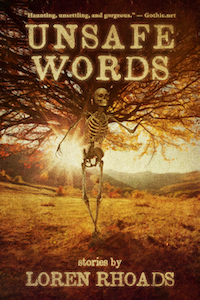
|
(published by Automatism Press) In the first full-length collection of her edgy, award-winning short stories, Loren Rhoads punctures the boundaries between horror, dark fantasy, and science fiction in a maelstrom of sex, drugs, and rock-n-roll. Ghosts, succubi, naiads, vampires, the Wild Hunt, and the worst predator in the woods stalk these pages, alongside human monsters who follow their cravings past sanity or sense. The stories are drawn from the pages of the magazines Cemetery Dance, City Slab, Instant City, and Space & Time, the Wily Writers podcast, and the books Sins of the Sirens, Demon Lovers, The Haunted Mansion Project: Year Two, Tales for the Camp Fire, and more. |
|||||||
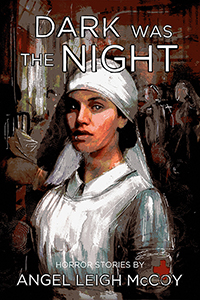
|
by Angel Leigh McCoy (published by Wily Writers LLC) The horror stories in this collection take you deep into lives touched by darkness. Herein, you’ll meet a grandmother with a knack for storytelling, a little girl caught in a lightning storm, and a medical intern who learns the true meaning of family–the hard way. At times gory, very often moody and intense, these tales reveal a truth about our world: evil exists, and love persists. |
|||||||
|
|
||||||||
Why not share your good news with your fellows and the world at large? Fill out the form linked below, and we’ll add your announcement to the Wily Writers’ private and public newsletters and to the Wily Facebook page. We want to brag about you!
What constitutes good news? So many things!
- a novel launch
- a short story, novelette, or novella sale
- publication of the work you sold
- receiving an award
- scheduling an event
- publishing a workshop or course
- being a guest/panelist at a convention
- or even a big life event — marriage, new baby, graduation? So many things.
The following ad appeared in the July 2021 issue of the Horror Writers Association newsletter as part of our Wily Writers Group Promotions Project! Thanks to a generous donation from a wily member, we were able to purchase two full-page ads. The second one will appear in August 2021.
 BAXTER ❖ RHOADS ❖ RABARTS/MURRAY ❖ NAVARRO ❖ MCCOY BAXTER ❖ RHOADS ❖ RABARTS/MURRAY ❖ NAVARRO ❖ MCCOY |
|

|
(published by 13th Dragon) The isolated Australian harbour town of Gulpepper is not like other places. Some maps don’t even show it. And only outsiders use the full name. Everyone who lives there calls it The Gulp. The place has a habit of swallowing people.
Five novellas by Alan Baxter. Five descents into darkness. Welcome to The Gulp, where nothing is as it seems. |

|
(published by Automatism Press) In the first full-length collection of her edgy, award-winning short stories, Loren Rhoads punctures the boundaries between horror, dark fantasy, and science fiction in a maelstrom of sex, drugs, and rock-n-roll. Ghosts, succubi, naiads, vampires, the Wild Hunt, and the worst predator in the woods stalk these pages, alongside human monsters who follow their cravings past sanity or sense. The stories are drawn from the pages of the magazines Cemetery Dance, City Slab, Instant City, and Space & Time, the Wily Writers podcast, and the books Sins of the Sirens, Demon Lovers, The Haunted Mansion Project: Year Two, Tales for the Camp Fire, and more. |

|
by Dan Rabarts and Lee Murray (The Path of Ra, book 3, published by Raw Dog Screaming Press) There’s been a gang massacre on Auckland’s Freyberg Wharf. Body parts everywhere. And with the police’s go-to laboratory out of action, it’s up to scientific consult Pandora (Penny) Yee to sort through the mess. It’s a hellish task, made worse by the earthquake swarms, the insufferable heat, and Cerberus’ infernal barking. And what’s got into her brother Matiu? Does it have something to do with the ship’s consignment? Or is Matiu running with the gangs again? Because if he’s involved, Penny will murder him herself… Join Penny and Matiu Yee for the family reunion to end all family reunions, as the struggle between light and dark erupts across Auckland’s volcanic skyline. |

|
(published by Macabre Ink) A plague of vampirism has crept across the country, reducing once-thriving cities to ghost towns. In Chicago, a few scattered survivors hide behind the fortified walls of office buildings and museums, raiding deserted stores for dwindling supplies of clothing and food. Meanwhile a hungry vampire population also struggles for survival as their prey grows scarce, forcing them to capture alive the last remaining humans as breeding stock for the blood farms that will ensure their future. |

|
by Angel Leigh McCoy (published by Wily Writers LLC) The horror stories in this collection take you deep into lives touched by darkness. Herein, you’ll meet a grandmother with a knack for storytelling, a little girl caught in a lightning storm, and a medical intern who learns the true meaning of family–the hard way. At times gory, very often moody and intense, these tales reveal a truth about our world: evil exists, and love persists. |
|
|
|
SEO = Search Engine Optimization
The most important thing I’ve learned during my journey to figure out publishing and the promotion of my work is this:
The world is run by search engines.
That’s oversimplified, but it’s true. I hadn’t thought of Amazon as a search engine, but that’s what it is. Sure, it’s an online store, but the engine that drives it is all about the searching.
Google, Bing, AOL, and Yahoo Search are all commonly accepted search engines, but consider for a moment that Youtube, Barnes & Noble, your online library catalog, and many other websites you visit are driven by a search engine.
In the most basic terms, search engines send a digital spider to “crawl” across vast amounts of data—very quickly—looking for the search term (a.k.a. keyword) you put in the box. Search engines do their absolute best to find the right matches for your search, but consider for a moment what a monumental task this is.
For example, a search for “werewolf novels” is going to find a gajillion results. Of all those results, how does Amazon or Google know which ones to serve up first?
What is a keyword?
A keyword is a word or phrase that a user inputs into the search field with the intent of finding information relative to the keyword. It can be one word or several.
How Search Engines Prioritize Results
Complex algorithms that I will never fully understand determine which results rise to the top of the list. The following criteria are the most important to us writers (not in any order):
- How well it matched the user’s keywords (what the user put in the search box)
- How many others have clicked on the result (yes, it’s a popularity contest—why Stephen King always gets top billing)
- Whether or not you’ve paid for primo placement (advertising)
Of those three things, there are two that you can control. Advertising costs money. Matching search terms costs time—and that’s search engine optimization (SEO).
Why You Should Care
Real talk. If no one ever sees your work, they can’t read it. It’s in your best interest to make it as easy as possible for the search engine to match your work to the user’s keywords.
Now for the How
1. Stop and think whenever you put anything out into the digital world either through your website, a blog, a product page, your bio, a Reddit post, a Facebook page, a Youtube video description, and so on… Think for a moment about how a search engine will view that content, then do your best to give search engines a little help.
2. It’s all about word choice.
Some simple rules apply. Remember this: when a search engine spider crawls a database or the Internet, it’s looking for text that matches the user’s query.
Thus:
- Don’t put important text only in images. The spider can’t see it there.
- Use words that you think a user might input when looking for a work like yours. It’s a guessing game, yes, but you can improve your chances with little effort. You can identify your best keywords in advance and keep a list somewhere for easy reference. Over time, this will become second nature. You may have noticed that some authors always use the same descriptive words and phrases in their promotional content. This is why.
- Don’t get lazy. Add that description or bio to your Youtube video, article, or interview. The title is never enough.
- Don’t just add a list of keywords. Work the keywords into the body of the text. We used to be able to add a long list of keywords, but these days most spiders recognize that it’s not part of the actual content. The one exception is hashtags on sites like Instagram, Pinterest, Twitter, etc. Those are also search engines, and those hashtags are keywords that help them serve up your content to the appropriate viewers.
Samples
Here are two versions of the same answer to an interview question.
Where do you get your ideas?
When I’m writing, I’m off in my imaginary world, but I also try to notice the real world around me. Most of my ideas come from the things I see, read, overhear, or even dream.
NOTE: vague terms, not much a search engine spider can latch onto
Where do you get your ideas?
When I’m writing a novel in my werewolf series, the HAIRY TEETH CHRONICLES, I let my hilarious characters and their twisted romance guide me, but the initial creative inspiration for the stories—the ideas—could come from funny dialogue I overhear out in public, the serial killer I read about, or a sexy dream I had.
NOTE: Keywords people might search on and find this:
writing a novel, novel, werewolf series, werewolf novel, novel series, werewolf chronicles, hairy, hairy teeth, hilarious characters, twisted romance, romance, creative inspiration, creative ideas, twisted stories, creative stories, funny, funny dialogue, serial killer, sexy, sexy dream.
This text, which is about twice as long as the previous version has a far-greater chance of attracting a spider.
NOTE-2: Many search engines will take individual words and recombine them to match them to different phrases. For example, “funny dream” isn’t a phrase used here, but anyone searching on it may still see your interview in their results. You don’t have to put in all the keywords with exact phrasing so long as the pieces are all there.
Here are two versions of a book description.
MORNING BREATH is the third book in the HAIRY TEETH CHRONICLES. Jim and Brenda have finally made up with the neighbors and are expecting their first child when the world is turned on its head. Adam is back, and he’s packing.
MORNING BREATH is the fast-paced third novel in the HAIRY TEETH CHRONICLES, a series that follows the romantic misadventures of two suburban werewolves. The sassy main characters ended the feud with their neighbors in the second novel—BLOODSHED IN THE SHED—and learned they’re pregnant. All seems idyllic until the seductive rogue vampire Adam returns for vengeance.
Ultimately, you’re going to be doing what you do best: choose the most descriptive and appropriate words that your reader-soulmates might use when looking for your work.
The world is a search engine. Keep that in the back of your mind whenever writing promotional content. Your fans will thank you!
Let’s get the hashtag #darkfiction reinvigorated! Use it on Instagram, Twitter, Facebook, your blog, or wherever you talk about your writing and books.
Using hashtags in social media increases the chance that your reader soulmates will find you. It improves your Search Engine Optimization (SEO) if you include it on your website.
You can put it into your newsletter and also educate your subscribers to look for it to find the posts of other dark writers. In this way, we build a presence and begin to share readership with one another.
Something to think about: What kind of person likes your books? What are they interested in? If you’ve never thought about these things, then your promotions won’t be as effective.
Your products have a “Reader Persona.” Intuitively, you know what it is, but maybe you haven’t owned it yet.
Why?
- Write more effective promotional content, including your book descriptions and cover copy, with the right audience in mind.
- Actively find the places where they hang out (both online and in the real world) and reach them directly with your promotions.
- Hone your fiction by making your books even more targeted to your ideal audience.
- Tighten the focus on your niche and achieve greater sales when you hit the bullseye. It’s the difference between using a laser and using a shotgun to reach potential readers. The laser will be far more effective and cost-efficient.
- Prove to agents and publishers that you know your profession and your intended audience.
Consider These Questions
The following questions narrow down your reader persona. Answer them to the best of your ability. It’s okay if you can’t answer all of them. There are no right or wrong answers. This isn’t about hard data. It’s based on your observations of who you want to reach and of who you think your books are attracting.
- What age group is most likely to buy your books? Break these into ranges, such as 13-17, 18-25, 26-35, 36-45, 46-55, etc. You can set your own ranges.
- What gender identities? The spectrum is diverse, but your books may appeal more to one subset.
- What education level? High school? Bachelor’s? Master’s? Doctorate?
- What religious affiliation? Christian? Jewish? Atheist?
- What interests? Coffee, recipes, LGBTQ, alcohol, cats, serial killers, monsters, true love, cosplay, history?
- How tech-savvy? Science nerd, computer geek, can’t figure out the TV remote, imagined technology rules?
- What sensibilities? No violence, happily-ever-after, gore is good, expects humor, technical accuracy?
The answers to these questions may seem obvious to you. They should. They grow out of your writing style, your plots, your characters, and your personal interests. In many ways, your reader mirrors you. Acknowledge that and double down.
The best example of a niche that does this well is the Cozy Mystery niche. They know their audience and keep their books within the boundaries of what their readers expect and like.
Know your reader persona. Give them a name, if that helps, and write for them. They’ll reward you with love and loyalty.
Did this inspire any ideas? Share them in a comment.
Looking for content for your blog or social media platform? Interview an expert. This increases your credibility and reach as well as that of your interviewee. Win-win.
Who?
- Another author in your genre
- A technical expert on a topic relative to your books
- Someone who does the same job your main character does
- An expert in the craft of writing and publishing (such as your publisher, editor, audiobook narrator, or someone like JoAnna Penn)
How
- Identify someone that your ideal readers would find interesting. See our article titled “Identify Your Reader Persona” for more on this.
- Contact them via email and ask, politely and professionally, if they’d be willing to do an interview. Introduce yourself, explain why you’ve chosen them, and include the medium (email, Zoom, etc.). Even if they say no, you’ve made a new contact.
- Do the interview itself via email.
- You can send your questions and the interviewee can answer at their leisure.
- You and the interviewee get a chance to edit it before it goes live.
- This is especially helpful if the topic is technical.
- Do the interview via Zoom or Skype.
- On Zoom, you can live stream or record it for later posting (or both).
- Do email them the questions you plan to ask in advance. No ambushing of your interviewee.
Tips & Best Practices
- It does not have to be long. One question? Two? Ten? It’s up to you.
- If you choose to go longer, remember that you can break it up into parts and feed it out to your audience in multiple posts. Even more content!
- If you’re shy/introverted, start with someone you know. With practice, it will get easier.
- Email is more professional than a Facebook message, if you have access to an email address. If not, a social media message is your second option. Be sure to check LinkedIn, where you may find better contact information.
- Ask in advance whether the interviewee has any topics they’d like to cover. Maybe they have a new book out that they want to promote.
- Ask your interviewee for a bio, web link, and a photo that you can use.
- Be respectful of and grateful for your interviewee’s time. They are busy people.
- Let the interviewee know where you’ll be posting it, and send them the link(s) once it’s posted. They will share it too!
- Use the same questions for multiple guests. Depending on your topic, this may or may not work, but it will save time.
- Post it everywhere you have a presence: Facebook, Twitter, Instagram, GoodReads, Amazon, etc.
- Friend/like your interviewee everywhere so that now you’re linked through social media.
- Use email templates so you don’t have to re-invent the wheel every time. See our article “Use Email Templates” for more on this.
Did this inspire any ideas? Share them in a comment.
Looking for tactics to get your name known? To increase your credibility with readers? Review other authors’ books. Presumably, you are already reading books in your genre, so leverage that to help get your reputation up.
When you review a book, you’re not just doing the author a favor, you’re reaching readers.
Where?
- Bookbub.com is a site for readers.
- Create an account, add a profile, add your own books to your profile, then search for and review the books you’ve read.
- Readers visit this site for ideas on what to read next. They follow genres and authors, and they can view your profile (and thus your books).
- Your review of another author’s book puts your name in front of them with the “author” label.
- You can follow other authors to be alerted when they put out a new book.
- You can offer deals on your books (if you’re self-published or if your publisher is on board) for Bookbub members. They send out newsletters to all their subscribers.
- Goodreads.com is also a site for readers.
- Similar to Bookbub in how it works, but it seems to be the top spot for readers to go who are looking for their next read.
- Your author profile on Goodreads will rank high on Google if anyone is searching for you.
- You add your books, and readers can follow you, review your books, or add you to a “To be read” list.
- When you review the books you’ve read on Goodreads, a lot of people see you.
- You can set up a blog on Goodreads to reach your readers.
- Amazon.com or Audible.com
- Amazon.com (Kindle, paperback, etc.) and Audible.com (Amazon’s audiobook arm) are search engines. Many people go there to search for their next book.
- Readers do read the reviews.
- On both these sites, you can click on the reviewer’s name to see what else they recommended.
- You achieve a reviewer rank the more you review, so if you read a lot, you can earn credibility.
- On your own social media
- Post your review on Facebook, Twitter, Instagram, or wherever you hang out online.
- Link to your profile on any of the above sites to get people going there and seeing your books.
- You have more freedom to discuss your own books/writing career in the context of the one you’re reviewing on these sites.
- All of the above!
- The greatest thing about reviewing is that you can write it once and post it on multiple sites. Thus, you multiply your reach and economize your time.
Tips & Best Practices
- Let the author whose book you’re reviewing know that you did. Send them a link or use an @link in Facebook or Twitter to make sure they see it. If you alert them via email, use an email template to save time. See our article “Use Email Templates” for more on this.
- If you have nothing good to say, say nothing. You’re not just a reader, you’re this author’s peer; so even if you hated the book, don’t slam it. Just don’t review it. Review only books you liked at least enough to give it 3 stars out of 5. Consider them more like recommendations than reviews. This is for your own protection. Stephen King can afford it. You? Maybe not so much.
- Don’t lie. If you didn’t like the book, don’t say you did. If you didn’t read the book, don’t review it.
- Keep it helpful. Think about what a reader would want to know. Is it slow in the beginning, but picks up and is worth the read? Is it funny? Is it sexy? How sexy?
- No spoilers! Although hinting that something really cool happens is awesome.
- Mention at least 3 things you liked about the book. Even if your review is only three sentences long, each sentence should call out one thing you liked (a character, descriptions, plot, dialogue, an interesting hook, etc.).
- Mention more things you liked than things you didn’t like. It’s okay to be somewhat critical, just don’t overburden the review with negativity.
- Don’t try to be overly erudite. Most readers won’t connect with that. Just say it like it is in regular man-on-the-street terms. [Caveat: Of course, erudition may be perfectly appropriate for a non-fiction book or classic literature.]
- Make sure your profile, wherever you’re reviewing, is kept up to date. All the sites listed above give you a profile that you can customize.
- It doesn’t matter how long ago you read it. You can still review it.
- If time is tight, consider paying someone to “polish” your reviews for you and post them. (A great odd job for your teenager!) You tell them how many stars to give it and offer a few adjectives to describe how you felt about the book, then the other person puts the review together for you and handles posting it. See our article entitled “Use Fiverr for Odd Jobs” for more on how to do this.
Did this inspire any ideas? Share them in a comment.
and quickest by helping others to succeed.”
—Napoleon Hill, author of Think and Grow Rich
When you help another writer, two things can happen:
- You build equity with your fellow authors.
- You build equity with your readers.
What is equity in this case?
It’s basically credit and reputation. You build relationships and name recognition.
With other authors, you pay it forward.
With your readers, you show them that you’re invested in what you do.
Idea List
- Review another author’s book. See the post Review Another Author’s Book.
- Promote another author’s book on your social media.
- Buy another author’s book and take photos of yourself with it. Share these photos on your social media with “Look what came in the mail!”
- Interview other authors for your blog. See the post Easy Content: Interview An Expert.
- Schedule a Wily Coffee Break with another author.
- If you see a submission call you think someone else might fit, forward it to them.
If you have any other ideas, fantastic! Put them in the comments.
Consider how many emails you send out in a day. The signature on your email (that piece at the bottom that your email provider automatically attaches) is powerful landscape for promoting your work to people with whom you’re in contact. If just one such email connects with a potential reader, then you’ve won the day.
You set your signature in the Settings of your email program. Here are instructions for the two most common.
Outlook
- Click File, then Options, then Mail, then Signatures.
- Click the signature you want to edit, and make your changes in the Edit signature box.
- When you’re done, be sure to select Save and then OK.
Gmail
- Open Gmail.
- At the top right, click Settings (the cog icon) and then See All Settings.
- Scroll down to the “Signature” section and add your signature text in the box. (You can add images or format the text.)
- Very important: when you’re done, be sure to scroll all the way to the bottom of the page and click Save Changes.
Critical Information to Include
(in order of importance)
- link to your website or Facebook page (your primary public space)
- link to wherever your latest book is being sold
- links to your other social media accounts
Some Tips
See samples below.
- Spell out your full professional name in your signature. If you use a pseudonym, put it here. You can use “Writing as [pseudonym]” if you sign your emails with your real name.
- Put a line or other visual divider at the top of your signature to set it apart from the body of the email.
- Many email providers let you create more than one signature to use in different situations.
- For example, Gmail will let you set which signature it uses for a new email versus a Reply email. This lets you use the long signature for first-contacts, but the short one for further conversation.
- Gmail then also lets you choose which sig you use when you write a new email (at the bottom of the email, click on the pen icon).
- Don’t make your Reply signature too big.
- You can add images, but don’t use images that are too big. Remember that it will slow down and clog up your receiver’s inbox.
- I recommend no bigger than 200-pixels-wide for a cover image. (See the article entitled “Image Editing” for more depth on this.)
- Set the dots per inch (dpi) to 72 pixels.
Sample Signatures
Did this inspire any ideas? Share them in a comment.










